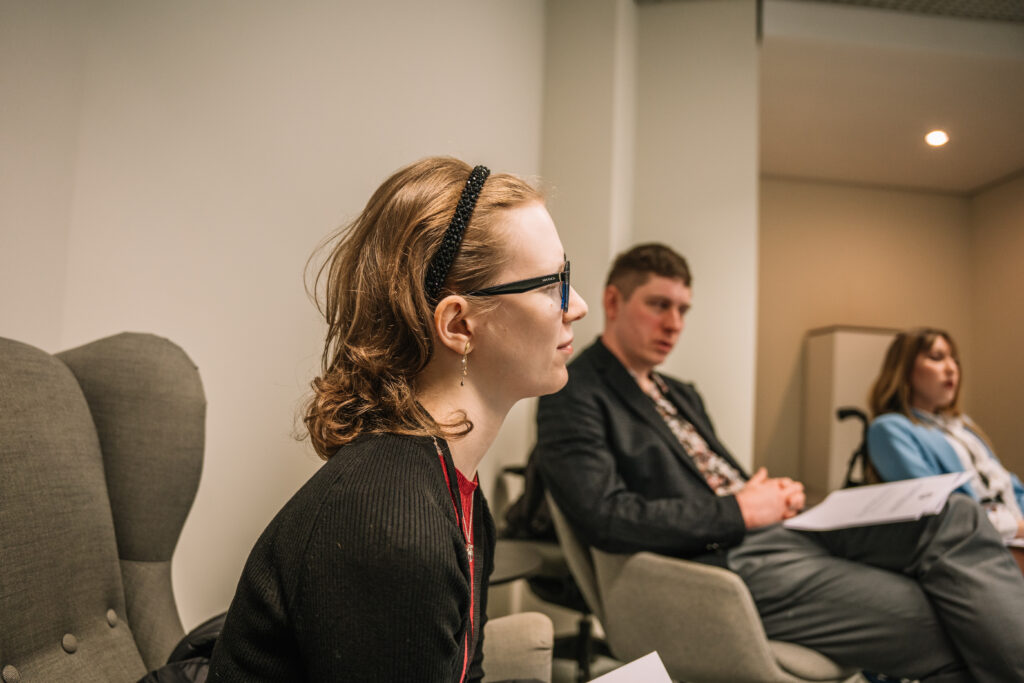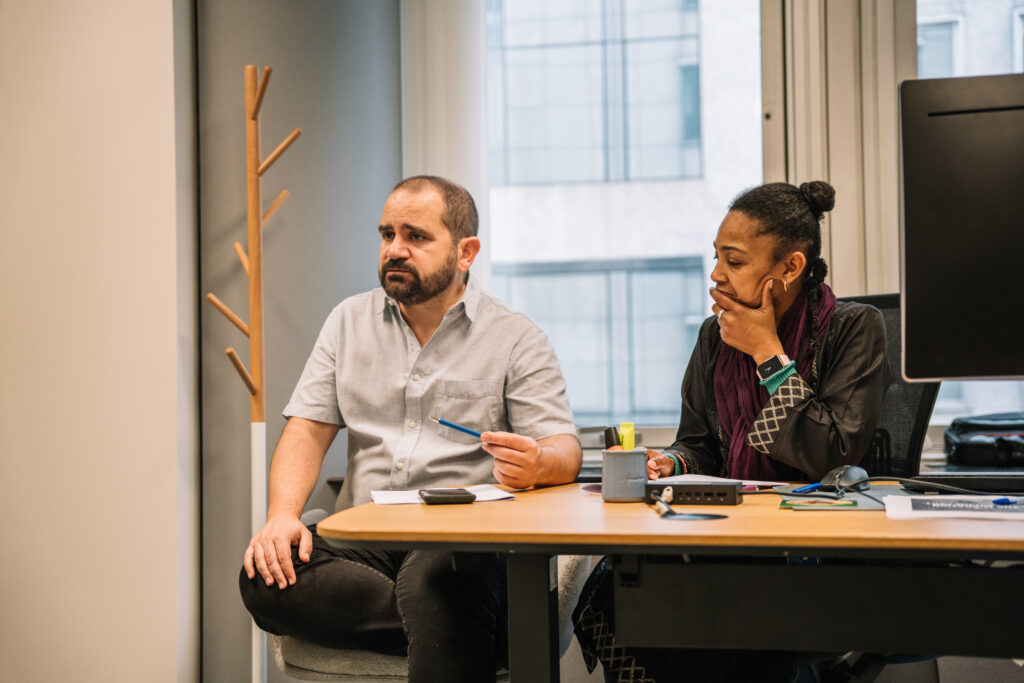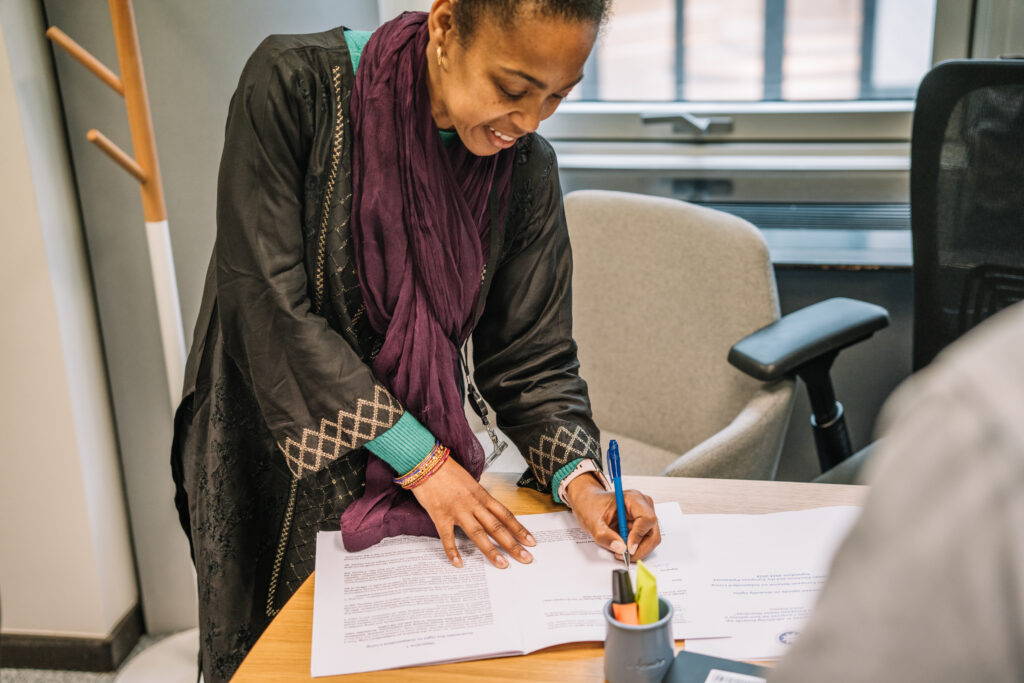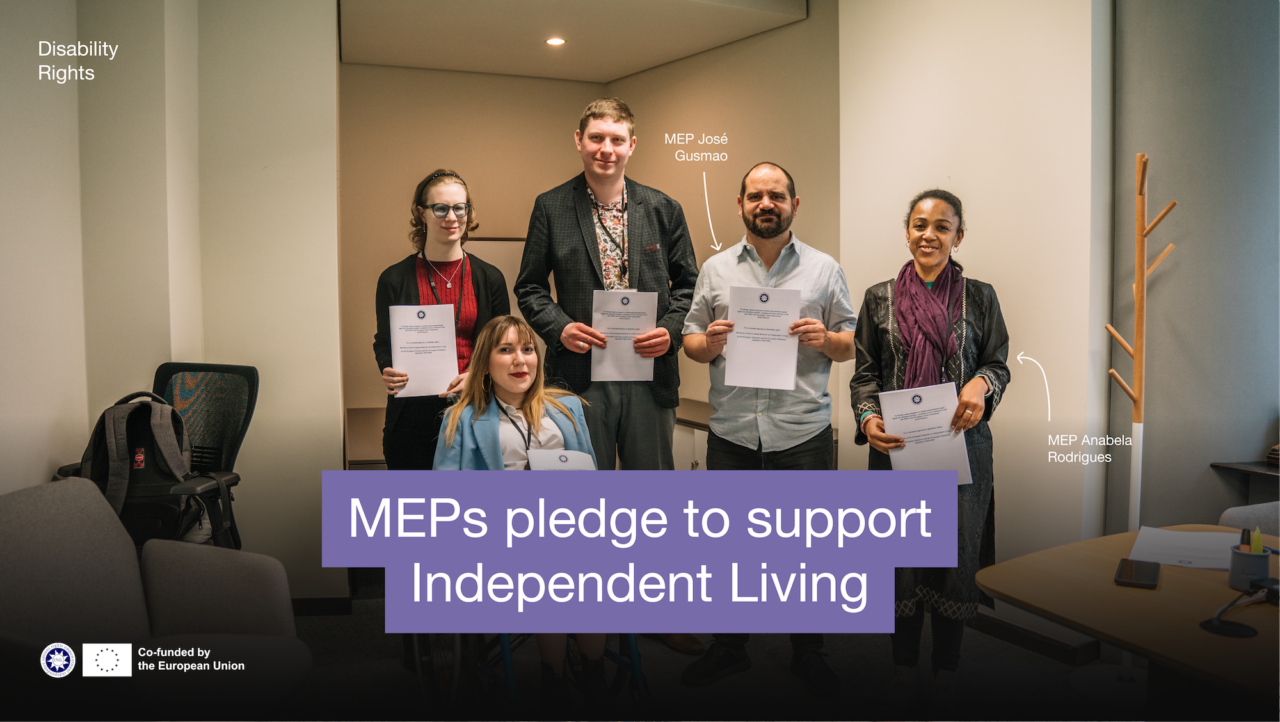Today the Members of the European Parliament José Gusmao and Anabela Rodrigues (both Bloco de Esquerda) pledged to support the ENIL Manifesto to the European Elections and the Legislative Period 2024-2029. In a meeting with the MEPs, Florian Sanden, Francesca Spanghero, Antonella Candiago and Michael Goossens from the ENIL secretariat in Brussels presented our long-term vision on EU disability policy. The objective is to raise the level of ambition, so there is much stronger support to Independent Living of disabled people coming from the European level.




Disability is an issue of fundamental rights and not of social policy. In the area of fundamental rights the EU has the competence to adopt binding legislation. At the moment, the erroneous belief that disability is a social affairs topic, is blocking meaningful action. The biggest barrier to Independent Living is the still prevalent practice of institutionalization and the deficit of community-based services such as personal assistance and peer support. ENIL is asking the EU to adopt a directive on Independent Living and to set standards on those topics.
There are EU directives on the equal treatment, prohibiting discrimination on the basis of sex and race. These directives are to be welcomed. At the moment, there is no equality directive prohibiting discrimination against disabled people outside the area of employment. That is unfair. ENIL, asks MEPs to appeal to the EU Council is to finally adopt the proposal for a directive on equal treatment between persons, irrespective of religion or belief, disability, age or sexual orientation.
MEP Gusmao talked about his support for Independent Living, deinstitutionalization and personal assistance. Only last year the Member of the European Parliament was invited to visit an institution for people with intellectual impairments in Portugal. The encounter truly shocked him, he explained to our delegation. A care assistant present-ed Gusmao with a group of older men that were referred to as “her children”. When asked if they were allowed to have partners, the carer ignored the question. Institutions are often justified with the argument that disabled people don´t want to be alone. In re-ality, being banned from having partners, condemns to a life in loneliness.
MEP Gusmao described the situation in Portugal, were there is still a lot of resistance to Independent Living. Nevertheless, there have been some successes. An EU fi-nanced pilot project has introduced personal assistance (PA) to the country. Some Centers for Independent Living which provide PA have received coverage by the so-cial security system. According to the MEP, because of the new right-wing government, there was not much hope for further advances.


Member of the European Parliament Gusmao agreed that the EU should aim to use more binding legislation to improve Independent Living. In his view, an important in-strument to tackle the topic was the use of EU funding. The MEP also declared support for an adaption of the directive on equal treatments. José Gusmao expressed interest in producing initiative reports, adopted as Parliamentary resolutions on those topics.
The proposal for a directive on the protection of vulnerable adults was discussed too. The ENIL delegation explained the risk of a cross-border recognition of placements in institutions and guardianship regimes.
The MEPs voiced disappointment at the decision of the EU Council not to criminalise forced sterilizations. A problem that required further action in the next legislature.
Both parliamentarians signed our Electoral Manifesto and thus pledge support to our policy objectives. Both MEPs are key allies and we will continue to work closely with them in the next period.



